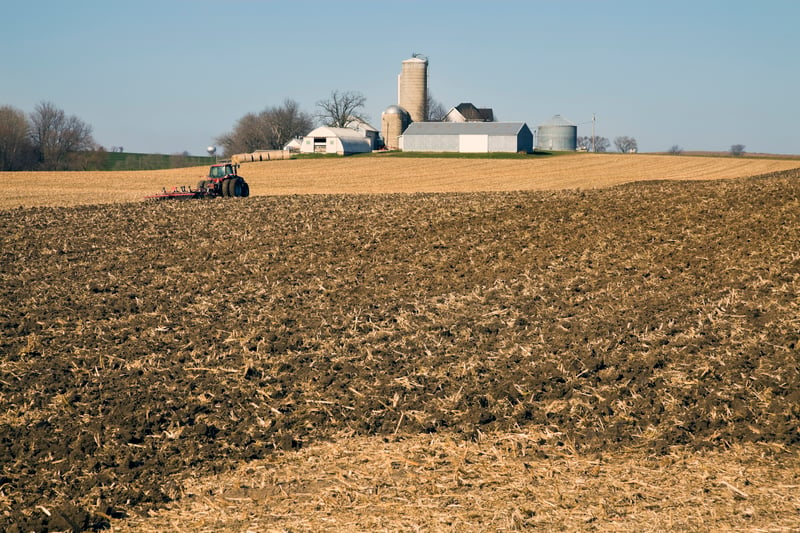How IF/VF Tires Help Make Farms More Profitable
With more acres to cover and the ever-present need to increase productivity, today’s farmers require equipment capable of pulling its weight. Just getting the job done is no longer an option—modern farmers need machines that are able to finish jobs faster and cheaper, while also not harming the valuable soil. One way farmers are accomplishing this is with high-tech IF/VF tires. If you’re not running IF/VF tires on your farm, here are ten reasons why you should.

1. Transfer More Horsepower: IF/VF tires, such as our line of Alliance AgriFlex tires, use highly advanced sidewalls and a network of steel belts to create a tire that produces a large, uniform contact patch that puts more tread on the ground—resulting in better transference of your machine’s horsepower to the ground.
2. Increased Capacity: IF/VF tires are specifically engineered to increase a machine’s capacity and productivity. IF tires can carry 20% more weight than a similarly sized radial tire at the same inflation pressure, while VF tires can bear a whopping 40% more weight at the same pressure.
3. Less Soil Compaction: It’s chilling to think that compacted soil can cut yields by 14% to 70%. IF tires can bear the same load at 20% less inflation pressure than a standard radial, which means about 20% less soil compaction. VF tires can carry that load with a wow-worthy 40% reduction in inflation pressure/compaction force.
4. Easier Tillage: Multiple studies have shown that compacted soils are more difficult to till; consequently, they’re also more expensive to till. One study demonstrated a 35% increase in fuel costs for tilling compacted soil.
5. Improved Fuel Economy: The larger, more uniform footprint of an IF/VF tire provides more flotation and traction than a standard radial, reducing fuel wasted through slippage—leading to improved fuel consumption.
6. More Roadable: Along with lug design and rubber compounds, the flexible sidewalls help reduce the friction generated where an IF/VF tire meets the ground, dissipate tire-killing heat, and make them well suited to machines that see as much time on the road as they do in the field.
7. Longer Lifespan: In addition to dissipating heat better than standard farm tires, IF/VF tires put more tread bars on the ground, reducing the amount of contact pressure put on the individual bars, helping them last longer.
8. Defend Against Downtime: The stout sidewalls of an IF/VF tire offer a strong defense against downtime resulting from corn stalk damage while the all-steel belts and radial plies of our AgriFlex tires protect the tread area against stubble damage and provide puncture resistance. Because of this, all of Alliance’s AgriFlex tires are steel belted.
9. Better Ride: One of the simplest ways to ease the stress on operators and machines is by operating equipment at its lowest appropriate tire pressure, which maximizes the tire’s ability to act as a shock absorber. Minimizing the number of shocks and jolts can cut back on maintenance and pay big dividends while working long days trying to squeeze a lot of labor into tight weather windows.
10. Winning Warranty: We’re so confident in the engineering, materials, construction, and performance of our tires, we back them with one of the best warranties in the industry.
To get peak performance from your IF/VF tires—and reap the rewards of increased efficiency and production, lower fuel costs, happier machines, and more alert operators, and higher-producing soils—it’s imperative to run your tires at the proper inflation pressure. If you have any questions about what pressure you should operate your tires at or want to learn more about our AgriFlex tires, contact your local dealer or rep today!


